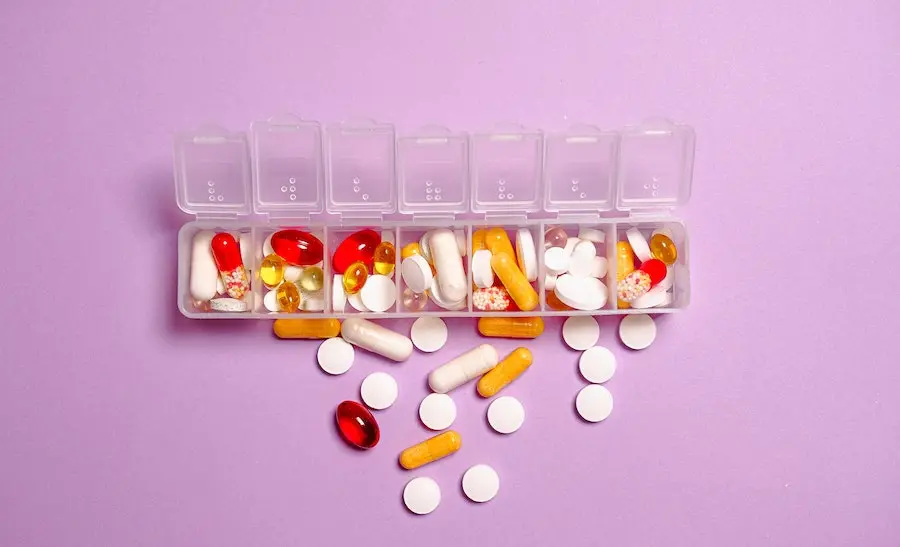Bipolar Disorder
Contents
Bipolar disorder is known as manic-depressive illness (mania refers to extreme energy levels, and sudden sadness, so on.)
It is a mental concern and causes extreme mood swings, which affect 2.8% of the population around the world.
These people will be happy at one time and very sad at other times, and also experience depression signs like sadness, hopelessness, etc.
Research reveals that bipolar disorder has different brain waves, than normal individuals.
If you experience or notice any mental issues, like excessive anxious feelings, then you should talk to your doctor before it becomes problematic.
This person may experience mixed episodes like mania and depression symptoms at the same time.
Bipolar disorders are also seen in children, which can be healed or improved over time, and in adults treatment and help are vital.
Types of Bipolar Disorder
There are main 4 types of bipolar disorder such as:
Bipolar I Disorder
This is extreme bipolar disorder, In this mania (increased mood, energy) and depression (sadness, hopelessness) episodes are seen.
During a mania episode person may experience increased energy levels, difficulty sleeping, overthinking, and sudden behaviour change.
Bipolar II Disorder
In this depression and hypomania attacks occur, which are considered less severe than mania, where symptoms occur for 4 to straight days.
Cyclothymic Disorder
We can say this is a less dangerous form of bipolar disorder, In this people experience both mania and depression symptoms.
This is less severe than both 1 and 2 bipolar disorder but needs medical attention to prevent further mental issues.
Bipolar Disorder and Rapid Cycling
People in this condition experience frequent and severe mood swings, which trigger mania, hypomania, and depression episodes.
Living with these conditions is difficult, even difficult to save relationships and work, due to sudden mood changes and then back to normal.

Mania Vs Bipolar Disorder
Both are different mental disorders, which allied with each other in signs and symptoms like:
In mania, a person feels they are on top of the world but in this disorder, people also feel mania and depression symptoms.
It is vital to note that it is not necessary that a person who experiences mania is also at risk of bipolar disorder.
Moreover don’t be confused with mania, hypomania, and depression all are different, but seen in this disorder.
- Mania: A time of extreme mood change, energy level change, overall behaviour changes, and so on.
- Hypomania: A less dangerous form of mania, but needs medical help.
- Depression: refers to hopelessness, behaviour change, suicidal thoughts coming to mind, etc.
Symptoms of Bipolar Disorder
With the latest research, there are several common and new signs and symptoms of bipolar disorder
Here are the signs and symptoms of bipolar disorder including both mania and depression signs and symptoms are:
Signs and Symptoms of mania are:
- Grandiosity (In this person self-image is inflated)
- decrease in sleep, but still active in too much activity
- easily distract from works
- more talkative than usual
- increase in activity
- more involvement in activities that he did or avoided
Signs and symptoms of depression are:
- feeling of Hopeless, sad, anxious
- suicide thoughts in mind
- difficulty in sleeping or sleeping too much, than usual
- lack of concentration
- fatigue
- lack of motivation and self-esteem
- frequent weight loss or gain
- loss of energy
- want live alone
- loss of interest in activities that make a person enjoyed
Research has shown that genetics play a vital role in bipolar disorder, which affects mood, trigger stress, and other brain functions.
If you notice any mental issues, then should talk to a doctor, as it may cause other mental disorders or worsen your situation.
Causes of Bipolar Disorder
There is no exact reason for this, but research suggests that it can occur more due to environmental, genetic, and triggering factors.
Here are common causes of bipolar disorder such as:
Genetics: It plays a vital role in this disorder, where family history of the disorder may contribute to this and other mental disorders.
A 2023 study revealed that a combination of genetic and family history of bipolar disorder may contribute to bipolar disorder.
Environmental factors: It means that your unhealthy daily life triggers your bipolar disorder and other mental disorders.
- Stressful Events: It is a major and common reason for this, where workload, family, and money stress leads to Bipolar disorder.
- Assault: Physical and mental assault leads to poor mental health, where depression, bipolar disorder, and other mental issues occur.
- Excessive alcohol and smoking: Both a major triggering factors for poor mental health, which can worsen the situation.
- Sleep disorder: Sleep-related disorders like insomnia, and sleep apnea, prevent you from sleeping, which triggers stress.
Chronic stress and anxiety are common triggering factors of mental disorders.
Developmental Factors: Any type of trauma, whether it occurs in childhood, or at a younger age contributes to this disorder.
A family history of bipolar disorder increases the chance of developing a disorder.
Treatment of Bipolar Disorder
There are several treatments available for bipolar disorder but with medical help, patients need family support also.

Medications
It is a common treatment to change brain waves to normal and reduce mood swings, which are responsible for this disorder.
Here are common medications which are commonly used by doctors are:
- Mood stabilizers
- anti-depression medicines
- ketamine (a new treatment that works effectively in rapid cycling disorder)
Healthytalk8 does not recommend any type of medication, consult your doctor, and then they will consider what is good for you.
Therapies
It is a really helpful way to ease mental disorder symptoms, where a specialist tells you how to change your mental state.
Mental state can change through yoga, meditation, CBT (cognitive behavioural therapy), breathing exercises, and so on.
Meditation: Research reveals that mindfulness-based meditation can lower stress hormones, depression symptoms, and extreme anxiety.
CBT: It is behaviour change therapy, where a therapist teaches the patient how to manage, control, or fight tough situations.
New research shows that CBT for the long term is helpful in reducing symptoms of other mental disorders and has seen better results.
Family therapy: In this doctor, includes family and other people which makes a comfortable, deep emotional attachment, which encourages a person to fight with this disorder.
Lifestyle Changes
There are several things that you should adopt in your life, to live a healthier life, and prevent several health issues in further.
Here are several healthy lifestyles which include:
Avoid Excessive Alcohol
Drinking alcohol is considered good for health, but in moderate amount, heavy dose leads to kidney and liver failure.
Studies have shown that higher levels of drinking increase the risk of death by promoting heart disease, cancers, liver, and trauma.
Get Enough Sleep
Getting enough sleep is good for reducing stress hormones, and it is considered that an adult person should sleep 7 to 8 hours.
Getting enough sleep makes your room cooler, and more comfortable, and sleep hygiene like sleeping at the same time, and taking a warm bath before sleep.
Avoid heavy food, and caffeine, and avoid exercise before at least 2 hours on a bed, it may interact with your sleep hormone called melatonin.
Do Regular Exercise
Exercise is the best way to promote overall health, so make sure to do at least 1 hour of exercise daily.
It prevent several diseases or reduces the disease symptoms and eases pain like reducing cardiovascular health issues, and so on.
Consume Healthy Diet
Eating healthy food is an excellent tool for maintaining mental health, change your diet plan, and you will see many benefits.
There are several foods that are best recommended for maintaining overall health, like omega-3, folate, vitamin B, and probiotics.
Down Line
If you notice any signs in someone, then you should talk to your doctor, it may raise other mental disorders.
Mania and bipolar disorder are allied with each other, where mania symptoms like extreme mood swings, and depression signs.

